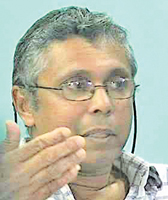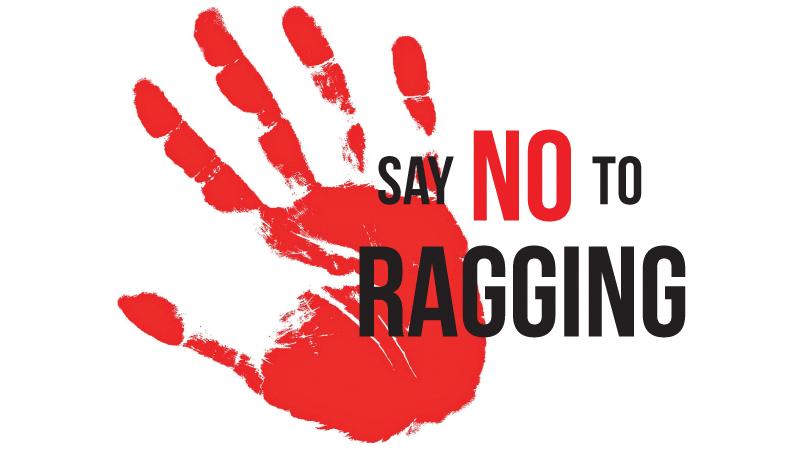Bullying, often normalised as part of the university subculture, has long been entrenched in Sri Lanka’s public universities. However, this deeply rooted practice has led to devastating consequences for students including psychological trauma, physical injury, and even death. Although strict laws exist to curb bullying, questions persist about their effectiveness and the continued reluctance of victims to speak out.
Legal framework

Prof. Nirmal Ranjith Dewasiri
In response to the rising number of bullying incidents, the Government enacted the Prohibition of Bullying and Other Forms of Violence in Educational Institutions Act No. 20 of 1998. This law criminalises freshman harassment, defined as any act likely to cause physical or psychological harm, fear, or distress to a student. Depending on the severity, offenders may face imprisonment ranging from two to ten years.
A landmark case illustrating the implementation of this law is the death sentence upheld by the Court of Appeal in connection with a freshman harassment-related murder at the Faculty of Engineering, University of Peradeniya, in 1997. The Victims of Crime and Witness Protection and Assistance Act No. 4 of 2015 offers mechanisms to protect individuals who report such offences.
Charith Dilshan case
The recent case of Charith Dilshan, a second-year engineering student at the Sabaragamuwa University, underscores the deadly consequences of unchecked bullying. On April 29, 2025, Charith died by suicide after enduring persistent bullying. In his final letter, he described the humiliation and emotional distress he suffered. Ten students were later arrested and remanded in custody in connection with his death, highlighting the grave dangers of university bullying.
Why victims don’t speak out

Attorney-at-Law
Senaka Perera
Despite the existence of legal protections, many victims of bullying remain silent. Why?
Several reasons contribute to this silence. Chief among them are the fear of retaliation, lack of awareness, and distrust in institutional processes.
The victims often worry about facing further harassment or social exclusion. Some are unfamiliar with the legal procedures or doubt whether their complaints will lead to meaningful outcomes.
Commenting on this, SSP Buddhika Manatunga, Police Media Spokesperson said that the issue is not a lack of complaints but rather a failure of the police to take adequate action. He called upon the victims to come forward without fear, citing the establishment of a new Witness Protection and Support Authority. He said, “Even the law does not help those who are sleeping, but those who stand up and come forward.”
Gaps in legal implementation
Although the legal framework appears robust on paper, its practical enforcement remains inconsistent. Attorney-at-Law Chathura Galhena said that while the existing legal provisions are sufficient, the university administration’s indifference plays a major role in implementation failures. He stressed the need for university authorities to take responsibility and for students to be educated about their legal rights.
Attorney-at-Law Senaka Perera, Chairman of the Committee for the Protection of Prisoners’ Rights, echoed this sentiment. He said that strong laws alone are insufficient unless supported by effective implementation and a shift in student attitudes.
Measures by the UGC

SSP Buddhika Manatunga
In response, the University Grants Commission (UGC) has implemented several initiatives, including, an online complaints portal for direct student reporting, a 24-hour hotline (011-2123700) as well as awareness campaigns to educate students about their rights and reporting channels
However, the use of these mechanisms remains low. Concerns persist regarding their accessibility and effectiveness. Prof. Nirmal Ranjith Dewasiri of the University of Colombo said that public trust in these systems is deteriorating, as students believe they are being used to suppress legitimate student activism. He stressed the need for holistic reforms, including efforts to shape students’ character and attitudes.
Student voices and responsibility
President of the Law Faculty Students’ Union at the University of Colombo, Ishan Imesh, said that ragging is not reported in his Faculty and that they have not received any formal complaints. However, he pledged to propose initiatives to the UGC to combat bullying, including in student hostels.
He added that his student union receives complaints anonymously and actively supports affected students. The Union also intends to advocate on behalf of victims at other universities, including Sabaragamuwa.
Effectively addressing bullying in Sri Lankan universities demands a multi-pronged approach that combines enforcement, education, accountability, and support.
Existing laws must be enforced more rigorously to ensure that the perpetrators face real consequences, while student awareness campaigns can help identify and challenge abusive behaviours early.
University administrations must be held accountable for creating safe, inclusive environments and for responding promptly and transparently to complaints. Equally important is the establishment of strong support systems, including accessible counselling services and legal aid for victims, to empower students to speak out without fear.
Ultimately, a positive, proactive strategy that empowers students and demands institutional responsibility is crucial to breaking the culture of silence and preventing further tragedies.






